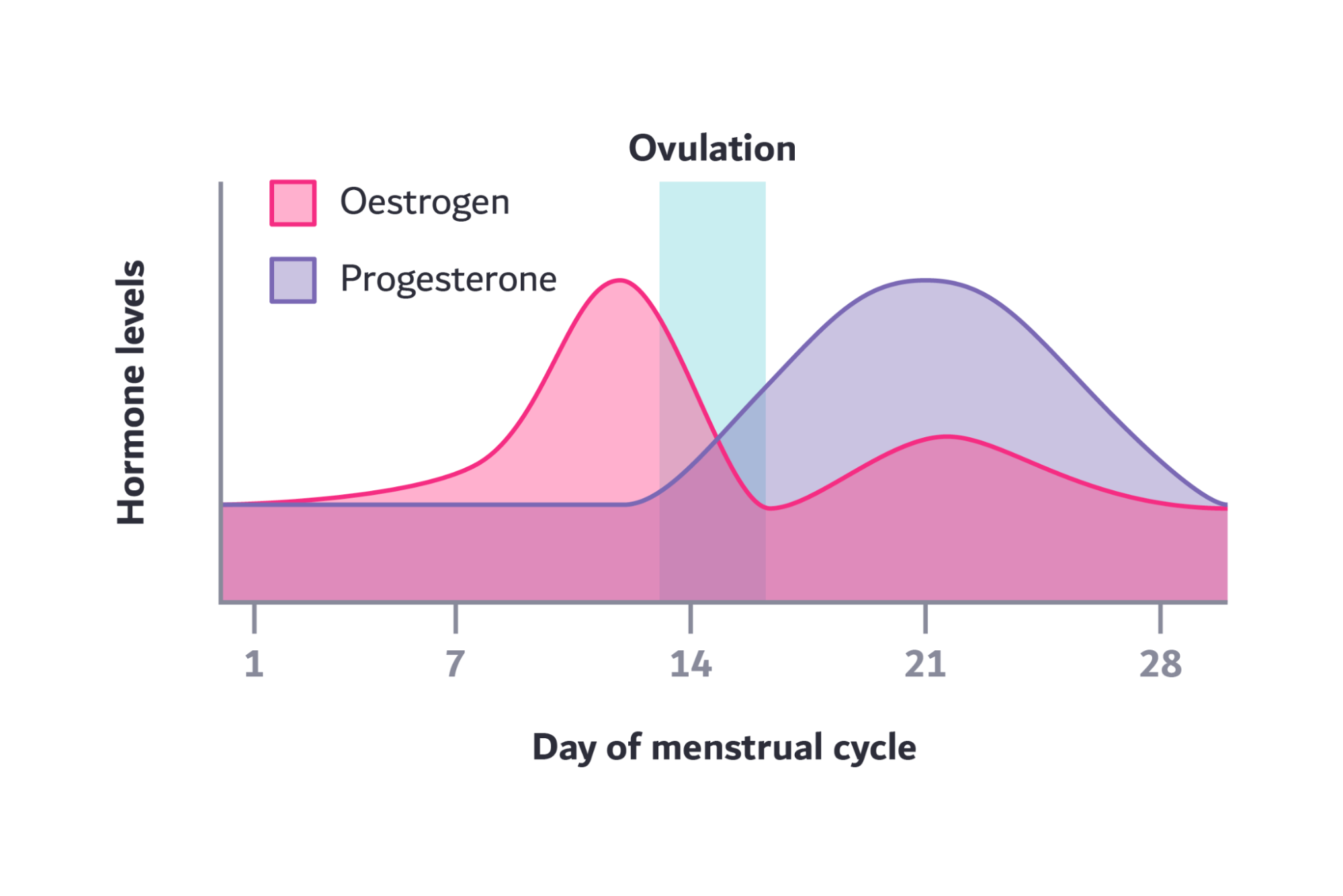Hormonal migraines, also known as menstrual migraines, are those that occur around the time of your period. They usually begin 2 days prior or up to 5 days into your period due to the changes in hormones at this time.
Around 14% of women people suffer from hormonal migraines.

The signs and symptoms of an abnormal period are symptoms that may surprise you:
- Cycle less that 25 or more than 35 days long
- Period length of less than 3 days and more than 7
- Ovulation pain
- Mood changes
- Acne
- Food cravings
- Crams
- Back and/or leg pain
- Fluid retention
- Weight gain
What can cause a hormonal imbalance?
- Stress
- Increased stress promotes increased levels of cortisol and adrenaline. This reduces the efficiency of the prefrontal cortex and increase that of the amygdala (participates in the regulation of the autonomic and endocrine systems). We then get an increase in our sympathetic nervous system, reducing blood flow to the gut and reproductive organs. There is also an increase in blood flow to our muscles.
- There is also a reduction in immune function and therefore increased levels of inflammation.
- Cortisol production reduces immune system function, which decreased progesterone production, this results in increased prostaglandins and increased oestrogen levels. The increased oestrogen levels reduces the function of the thyroid glad. - Sleep
- Important hormones are regulated through our sleep cycle, these include; cortisol, insulin, leptin and thyroid. - Gut health
- IBS is common in women with hormonal migraines.
90% serotonin (controls mood and happiness) is produced in the gut.
- Dopamine (controls pleasure, satisfaction and motivation) is also largely produced in the gut
- There gut is also responsible for the production of many hormones
- Inflammation in the gut can lead to leaky-gut syndrome and increased levels of inflammation around the body by absorbing toxins and not excreting harmful substances to our body. - Thyroid
- heart rate, blood pressure and body temperature are all regulated by the thyroid gland
- increased levels of oestrogen can cause increased production of Thyroid Stimulating Hormone and over time, a reduction in thyroid function.
- Progesterone plays an important role with the thyroid gland in which it increases its activity, helping to convert fat to energy, - Sugar
- A spike in our sugar levels results in a quick drop in sugar levels shortly after. This stimulates cortisol to rebalance sugar levels. Increased levels of sugar in our body can result in insulin resistance causing excessive fogginess, fatigue and mood changes. This can also affect our bodies ability to metabolise hormones such as testosterone and oestrogen as there is a decrease in the livers ability to break them down.
The main hormones involved include:
- Cortisol
- Oestrogen
- Progesterone
- Insulin
- Thyroid
How to help a hormonal imbalance:
- Stress management
- exercise
- reading
- meditation
- podcast
- movie - Decrease sugar consumption and eating lower GI foods
- Obtain a healthy weight
- increased abdominal fat can lead to oestrogen resistance - Decrease alcohol and caffeine
- Affects the metabolism of oestrogen and testosterone
- increased cortisol levels - Increase fibre and cruciferous vegetables
- helps decrease oestrogen levels - Water
- Improving gut health
- Exercise
- reduces cortisol levels
- improves sleep
- helps prevent insulin resistance - Supplements (please as your osteopathy which are appropriate for you)
Call or book an appointment today to find out how osteopathy can help with your hormonal migraines on 0422 639 369

